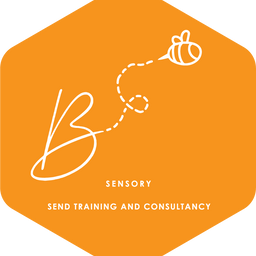December Newsletter
Congratulations and welcome to all the new Sensory Practitioners! This month I have 8 sensory winter themed activities!

Firstly, congratulations and welcome to all the new Sensory Practitioners! I have been blown away by the support I have received this month. I have had the pleasure of training professionals not only online, but also in person in Wales, and I have also had the honour of being the guest speaker at Leeds College.
This month I have two SOLD OUT online sessions!
Thank you all so much for your love and support in all things sensory!
Sensory Sessions
Winter Sensory Activities

It is that time of year again!
This month we have 8 sensory activities, covering senses all the senses. All are designed for little to no cost and super quick to create!
As this month brings many changes through all the senses- the smells, the lights, the textures, the tastes; as well as the change in routine, December can be a month of sensory overload.
These activities are designed to encourage sensory regulation without overload.
To access all these activities, and more, you can sign up and subscribe at www.bsensory.org

Training Opportunities
ARFID Course and more
The first ARFID and Sense-sational food project course is in January! As every participant receives a FREE SENSE-sational food project box and resources (worth £60), we are closing the bookings in 2 weeks so that we have time to send them out to everyone. I have capped numbers on this, so if you are interested, make sure you book soon!
To book visit-


Avoidant restrictive food intake disorder, more commonly known as ARFID, is a condition characterised by the person avoiding certain foods or types of food, having restricted intake in terms of overall amount eaten, or both.
Someone might be avoiding and/or restricting their intake for a number of different reasons. The most common are the following:
- They might be very sensitive to the taste, texture, smell, or appearance of certain types of food, or only able to eat foods at a certain temperature. This can lead to sensory-based avoidance or restriction of intake.
- They may have had a distressing experience with food, such as choking or vomiting, or experiencing significant abdominal pain. This can cause the person to develop feelings of fear and anxiety around food or eating, and lead to them to avoiding certain foods or textures. Some people may experience more general worries about the consequences of eating that they find hard to put into words, and restrict their intake to what they regard as ‘safe’ foods. Significant levels of fear or worry can lead to avoidance based on concern about the consequences of eating.
- In some cases, the person may not recognise that they are hungry in the way that others would, or they may generally have a poor appetite. For them, eating might seem a chore and not something that is enjoyed, resulting in them struggling to eat enough. Such people may have restricted intake because of low interest in eating.
It is very important to recognise that any one person can have one or more of these reasons behind their avoidance or restriction of food and eating at any one time. In other words, these examples are not mutually exclusive. This means that ARFID might look quite different in one person compared to another. Because of this, ARFID is sometimes described as an ‘umbrella’ term – it includes a range of different types of difficulty. Nevertheless, all people who develop ARFID share the central feature of the presence of avoidance or restriction of food intake in terms of overall amount, range of foods eaten, or both.
This accredited one day course is designed to up-skill professionals working with and caregivers living with children and young adults displaying traits of ARFID (Avoidance/Restrictive Food Intake Disorder) and then to be able to deliver the Sense-sational food project.
What the course covers -
- What is ARFID?
- ARFID and lack of interest in food, trauma and food fear
- Sensory and food
- Homelife and ARFID
- Reasonable adjustments
- The SENSE-sational food project intro and assessments
- Health and safety, Risk, Referral and Law
The Monthly Stuff
All the other bits!
*Don't forget to follow me on the socials BSensorytraining - next month I have a BIG give away, so make sure you are following for your chance to win!
*I am now delivery the PDA Advocate course for NW Autism and SEND, and it has been very well received with some amazing feedback! If you would like to book on, head over to NW Autism and SEND for more info
*I have received a lot of emails this month from schools and settings asking for extra support, sensory room planning and whole staff training! This is amazing! Thank you. Please make sure you contact me if you have any requests- contact@bsensory.org
Finally, I wish you all a very Merry Christmas and a Happy New Year!
Thank you again for your support,
Beth

